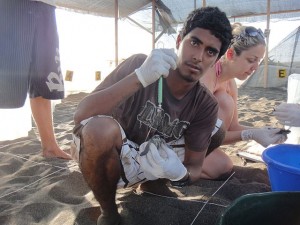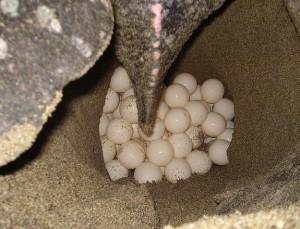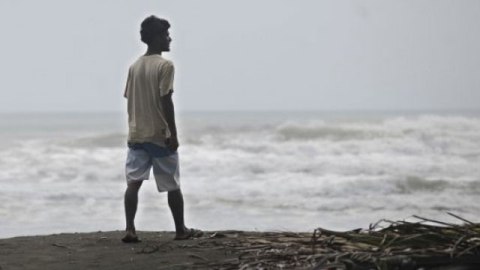Costa Rica News – There are questions going through the minds many people watching the recent events in Costa Rica; Will the murderer of Jairo Mora Sandoval ever be found and will the Costa Rica government address the drug trafficking going on within its borders?
 In a country that prides itself on having a bountiful collection of ecotourism companies that do business out of Costa Rica and specific eco-tourism vacations for people; why has the government not put their money where their revenue dollars come from by hunting down the criminals responsible for torturing, beating, and killing Jairo Mora Sandoval; someone that has constantly fought for, and been committed to saving species of sea turtles that lay their eggs on the coasts of Costa Rica?
In a country that prides itself on having a bountiful collection of ecotourism companies that do business out of Costa Rica and specific eco-tourism vacations for people; why has the government not put their money where their revenue dollars come from by hunting down the criminals responsible for torturing, beating, and killing Jairo Mora Sandoval; someone that has constantly fought for, and been committed to saving species of sea turtles that lay their eggs on the coasts of Costa Rica?
According to a WIDECAST (a Turtle conservation group), spokesman stated, and “Our understanding is that [Mora] was getting in someone’s way Jairo spoke out against the criminal elements there (in Costa Rica), and the fact that they left sand in his throat sends a clear message to our organization. They wanted to silence him.” So who is the ‘they’ behind this brutal murder?
Drug trafficking is a serious impediment to conservation efforts in Latin America – as New Scientist discovered on a 2006 reporting trip to Mexico, where an epidemic of drug addiction among local fishermen and threats against officials charged with enforcing environmental laws were hampering efforts to protect endangered turtles. While the precise circumstances of Mora Sandoval’s death are still under investigation, friends and colleagues believe his outspoken comments about the links between drug trafficking and poaching on nearby Moín beach may have made him a marked man.Turtle eggs are believed by local people to be an aphrodisiac, and retail for about US$1 each, says Didiher Chacón of WIDECAST, the Caribbean turtle conservation network for which Mora Sandoval worked. Given that a single nest can contain 80 or more eggs, trading in turtle eggs can be a lucrative sideline for criminals employed by drug gangs to move their products along the coast.
The belief is that conservationists are a nuisance to drug traffickers because they drew authorities’ attention to the quiet beach areas used to transport narcotics. In March 2012 an armed gang raided a hatchery in Moín that was used to incubate eggs taken from the beach to protect them from poachers. Workers were held at gunpoint and eggs were destroyed. It was later learned that this was supposed to send a clear message to the conservationists to stay clear of the beaches. Locals started spotting outsiders who wandered the beaches at night, armed with pistols and, on rare occasions, AK-47 assault rifles. They stole eggs, which could be sold for about $1 in the black market. More recently, the poachers have traded their eggs for drugs with local  traffickers. (Buying or selling turtle eggs is only legal on two beaches in Costa Rica, on the Pacific coast.) “The socioeconomic situation in the region has led people to believe in illegal businesses,” Chacón said. “And on a public beach, a place without any protection, they can do whatever they want. There is no law there.”
traffickers. (Buying or selling turtle eggs is only legal on two beaches in Costa Rica, on the Pacific coast.) “The socioeconomic situation in the region has led people to believe in illegal businesses,” Chacón said. “And on a public beach, a place without any protection, they can do whatever they want. There is no law there.”
A month before he was killed, Mora had decried the presence of drug dealers and turtle-egg traders in the Costa Rican province of Limón. However, he did it in a major Costa Rican newspaper, La Nación. Mora recounted anonymous threats he’d received, telling the paper that he’d pled for help for weeks. On April 23, he wrote on his Facebook page: “They could send policemen to the beach in Mohín. They shouldn’t be afraid, they should just come armed, that’s all.” But authorities rarely showed up, he said; conservationists couldn’t count on police support.
Where this case stands now is unsolved. Captain Paul Watson has announced today that he is offering a $30,000 U.S. reward for information that leads to the arrest and conviction of the person or persons responsible for the murder of Jairo Mora Sandoval, the Costa Rican conservationist who was recently murdered by narco trafficking turtle egg poachers at Playa Moín on the Caribbean side of Costa Rica. While this reward is substantial, it probably isn’t enough to get people to step forward with information about this case due to the safety of themselves and their families. Do these environmental groups truly believe that $10,000 to $30,000 is worth the most likely murder of themselves and their families by these drug cartels? They would have to be given another life in another country, basically being placed in a witness protection program and disappearing forever.
Quoting from Captain Paul Watson’s Facebook page about this case in relation to the government; “They were quick to respond to Japan to issue a warrant for my arrest for protecting sharks from an incident in 2002 yet when it comes to this horrific murder of a compassionate conservationist, the government does nothing,” he said. “It seems to me that if the government spent the same amount of time pursuing violent poachers and fighting drug cartels as they do pursuing non-violent conservationists, they might regain the trust of the conservation community worldwide, a trust they pretend to have but do not.”
By Stacey Dunahay

